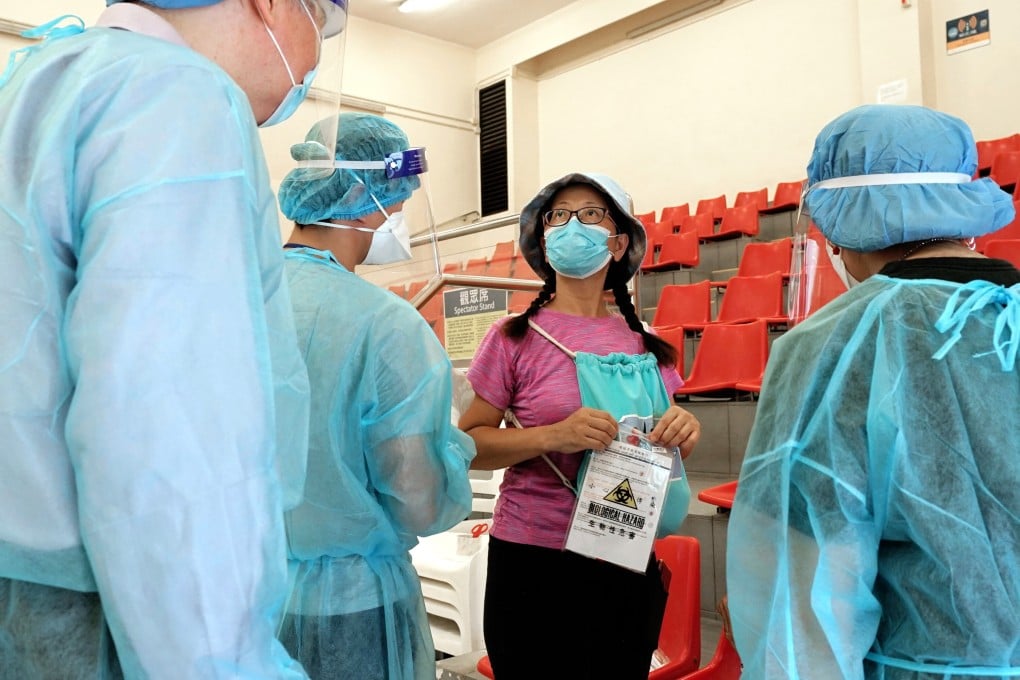Advertisement
Hong Kong leader Carrie Lam urges opposition to get behind Covid-19 tests, which she says can help kick start city’s economy
- Chief executive urges those who have spoken out against scheme to stop using it to play politics
- Tests will help government feel safer when making decisions on social-distancing measures, Lam says
Reading Time:2 minutes
Why you can trust SCMP

Hong Kong’s leader has urged medical experts and opposition activists to stop playing politics with the Covid-19 testing programme, saying the scheme could put the city’s economy back on track.
Chief Executive Carrie Lam Cheng Yuet-ngor made her comments on Tuesday as she revealed that her upcoming policy address on October 14 would not include many new measures that required public cash, as the city’s finances were in a “very severe” situation, and the government had to focus on medical services and economic recovery.
The voluntary testing programme, which starts on September 1 and will last for no more than two weeks, aims to identify silent transmitters of the coronavirus.
Advertisement
More than 100 booths are to be set up across the city’s 18 districts, with around 3,000 medical professionals helping carrying out the tests.

03:07
Hong Kong’s mass Covid-19 testing to begin on September 1, to last at least 7 days
Hong Kong’s mass Covid-19 testing to begin on September 1, to last at least 7 days
Even though the government’s medical advisers supported the scheme, some have remained sceptical, disputing its effectiveness.
Advertisement
Advertisement
Select Voice
Select Speed
1.00x